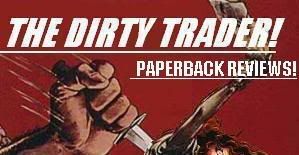

Comic books are the enduring passion of my life. I love and am knowledgeable about other stuff, but it's always come back to comics since I was a little kid. I can't read enough of them, or about them. There's been a fairly steady supply of comic book books since Jules Feiffer's The Great Comic Book Heroes in the 1960s. Up through the '80s, these books tended to focus on the Golden Age of Comics, from before World War II until the Wertham crusade killed EC and company in the 1950s. A couple of fans named Will Jacobs and Gerard Jones took it upon themselves to write a book that chronicled the Silver Age, emphasizing basic history and story critiques. In the 90s, Jones authored a heavily revised version of their book, The Comic Book Heroes: The First History of Modern Comic Books - From the Silver Age to the Present. It remains my favorite of the genre, as hindsight allowed Jones to speak about comic history from the 1950s-90s not as a fan, but as a veteran of the industry with inside information and the critical eye that comes from choosing an early retirement from the game.
With Men of Tomorrow, Gerard Jones seems to want to fill in the gap in his exploration of industry history by offering his take on the Golden Age. It's a vastly different book from Heroes, though. Jones' focus is far more narrow, his primary subjects being Superman creators Jerry Siegel and Joe Shuster, and Superman owners Harry Donenfeld and Jack Liebowitz. Two of these guys were among the first generation raised within geek culture. The other two grew up on the mean streets, and discovered very different but ultimately extremely complimentary ways to hustle their way uptown. Siegel was a mama's boy with anger issues whose small victories were forever overshadowed by his loss of Superman. Shuster had bigger problems, like slowly going blind. Donenfeld was an attention whore who mingled with mobsters and found his first great success with girlie magazines and spicy pulp fiction. Liebowitz watched his father struggle for the cause of socialism, and decided he preferred a sort of compassionate capitalism. A fair amount of drama can be found in these men and their associations.
There is no shortage of supporting players, as well. Jack Kirby, Will Eisner, the Gaines family, Mort Weisinger, Jack Cole, Charles Biro, Hugo Gernsback, Malcolm Wheeler-Nicholson and many more have their parts to play. In fact, there are arguably too many players. Chronology jumps all over the place from chapter to chapter, and a number of paragraphs will be devoted to what amounts to a brief cameo appearance from some luminary of science fiction, crime, and so on. It isn't a definitive history of a given era, spanning something like a hundred years in time, and it isn't a biography in the generally accepted sense. The book is shambolic, tracing the origins of comics from the Yellow Kid through the pulps, then dipping into various peoples lives from the 20s through the 60s, before picking a few favorites to linger with for the rest of their lives. I suppose you could call it homeopathic, seeking the zeitgeist by touching on as many influencing factors as possible. The result is entertaining and enlightening, but also somewhat frustrating and unsatisfying. There is so much disorganized material and editorializing, so many conspicuous absences and lapses in focus, the text simultaneously dry and gossipy.
Men of Tomorrow is a tricky book to recommend. The gangsters show up, but a crime buff wouldn't be sustained by their limited presence. A lot of time is spent on the pulps, but it isn't a remotely comprehensive look. Comic fans are likely to want to hear more about the characters, or at least a broader cross-section of the more famous creators. Whole books have been devoted to Siegel and Shuster already. I'm fairly certain no one else has offered as thorough an examination of Donenfeld, Jack Liebowitz and maybe Weisinger, but how large is the audience for that? I'm glad I finally read the book, although I took it in pieces over a span of five weeks. As someone with a lifelong passion for comics, it served my interests well, but its path is so varied and niche that I'm not sure I know anybody else who would really be game.


No comments:
Post a Comment